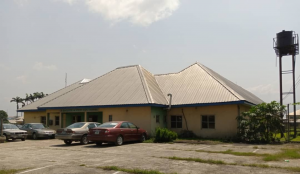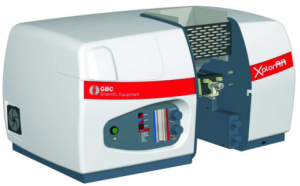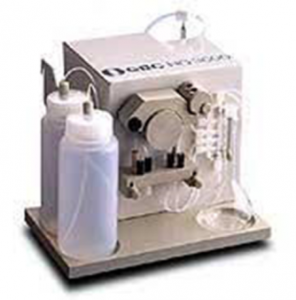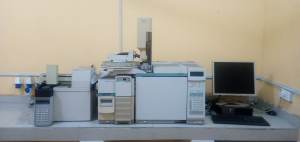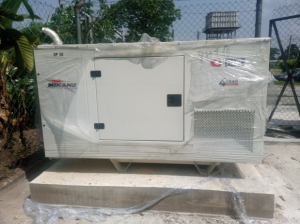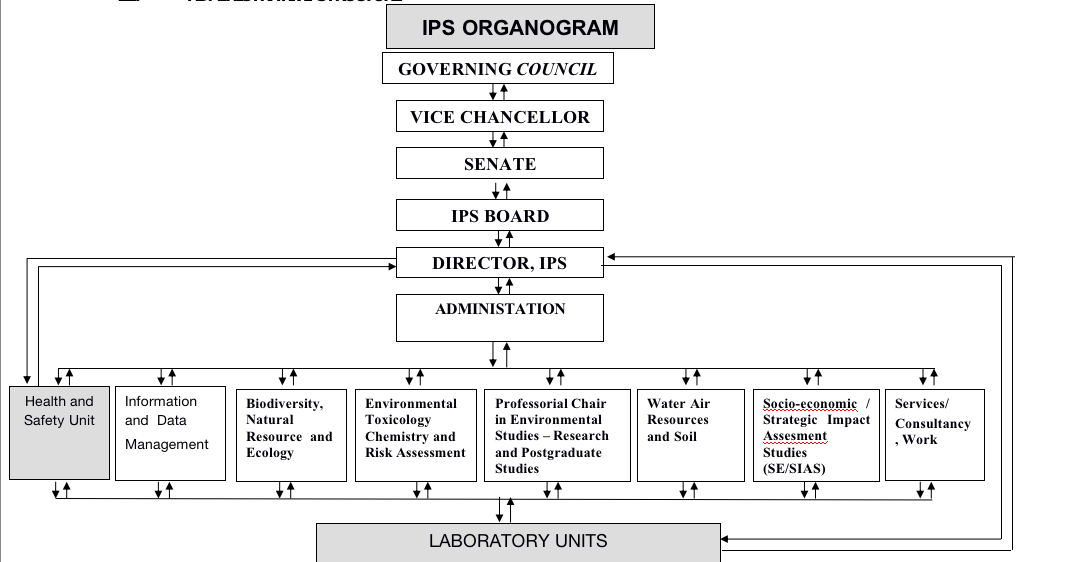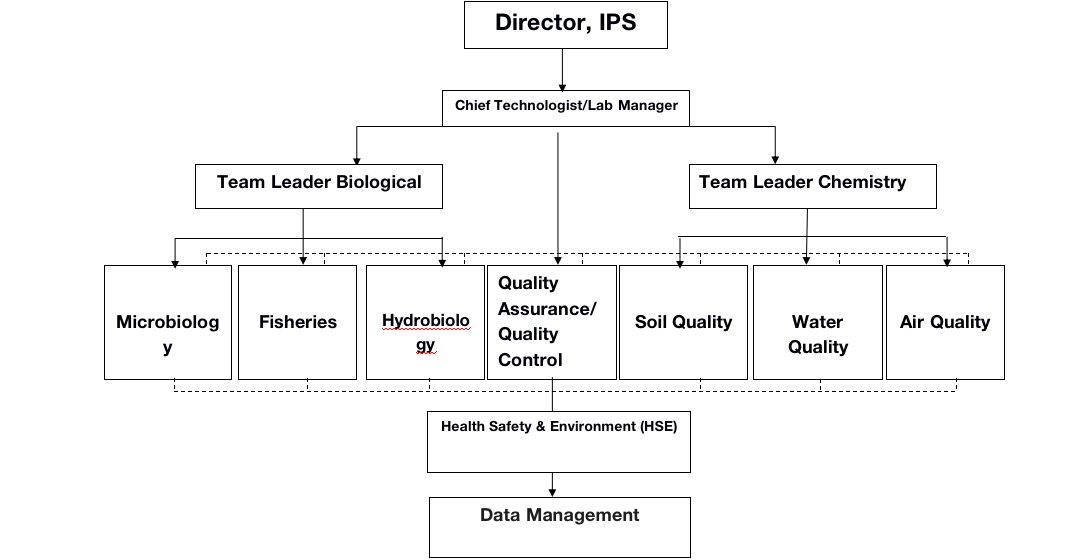|
1
|
Environmental Baseline Studies for the establishment of control criteria and standards against Petroleum Related Pollution in Nigeria.
|
|
2
|
Biological Baseline Data Acquisition at NNPC Installations.
|
|
3
|
Baseline ecological Studies of Bonny South (Field) Location.
|
|
4
|
Environmental Impact Assessment of the Nitrogenous Fertilizer Project.
|
|
5
|
Oshika Oil Spill (NAOC Pipeline) Environmental Impact Assessment.
|
|
6
|
Pilot Scheme on Local and cheaper Methods of Flood and Erosion control.
|
|
7
|
Master Plan and Design of Flood and Erosion Control Measures in the Niger Delta.
|
|
8
|
Engineering Design and Supervision of Flood and Erosion Control Measures in Five Towns and Villages in Rivers State.
|
|
9
|
Tidal Tables for Nigerian Waters.
|
|
10
|
New Finima Town Relocation Project.
|
|
11
|
Determinations of environmental parameters for the
Bonny NLNG port development.
|
|
12
|
Nigerian Coastal Erosion Research Programme.
|
|
13
|
Ebubu Ochoni Post Impact Studies.
|
|
14
|
Baseline Studies at Elepa Fields.
|
|
15
|
Ecological Baseline Data Collection in Soku Field (1990).
|
|
16
|
Environmental Impact Assessment of the transmission system for the Nigerian LNG project (1990).
|
|
17
|
Environmental Impact Assessment of Soku Gas Plant (1991).
|
|
18
|
Environmental Impact Assessment of the AGIP NLG Pipelines (1992).
|
|
19
|
Ecological Post Impact Studies of the Agip Irri’A’ Isoko South 2 and Samabiri East 3 Location (1992).
|
|
20
|
Post Impact Assessment of Enwhe Spill for Shell Pet. Dev. Company (1992).
|
|
21
|
Ecological Baseline Studies of Nembe IV Flowstation (1993).
|
|
22
|
Bonny Estuary Spill Post Impact Study for Shell Pet. Dev. Company (1993).
|
|
23
|
Environmental Impact Study of the Clough Creek – Tebidaba Pipeline Spillage for the Nigerian Agip Oil Company (1993).
|
|
24
|
Environmental Impact Study of the Ebocha-Ogoda Pipeline Spillage for the Nigerian Agip Oil Company (1993).
|
|
25
|
Ecological Post Impact Assessment of Ekulama II Flowstation (1994).
|
|
26
|
Environmental Impact Assessment of the AGIP Ogbainbiri Flowstation and the Ogbainbiri-Tebidaba Pipeline (1994).
|
|
27
|
Ecological Post Impact Assessment Studies of Belema Flowstation (1995).
|
|
28
|
Environmental Impact Assessment of the Bonny Export Terminal for the NNPC (1995).
|
|
29
|
Environmental Impact Assessment of Akiri/Oguta FEDP (1996).
|
|
30
|
Post Impact Studies of the Oil Spillage site along Ogoda – Brass Pipeline near Odau (1996).
|
|
31
|
Post Impact Assessment of Chanomi Creek Complex polluted by Shell Nigeria Limited (1984).
|
|
32
|
Environmental Evaluation of Inda Well completion and development in oil mining concession 52 belonging to Chevron Nigeria Limited (1992).
|
|
33
|
Environmental Impact Assessment of the Opuekeba pipeline project (OML 49) (1993).
|
|
34
|
Environmental Baseline collection of environmental data for the offshore oil mining concession 100 (1993).
|
|
35
|
Environmental Impact Assessment of Mobile NGL project (1994).
|
|
36
|
Pre-drilling Seabed Sampling & Analysis of North Oron Well Location (1995).
|
|
37
|
Pre-drilling Seabed Sampling & Analysis of Ukpam Deep Well Redrill (1995).
|
|
38
|
Post-drilling Seabed Sampling & Analysis of North Oron Well Location (1995).
|
|
39
|
Pre-drilling Seabed Sampling & Analysis of Adanga SW-1 Well Location (1995).
|
|
40
|
Environmental Impact Assessment of Nembe Creek Field Development Plan (1997).
|
|
41
|
Environmental Impact Assessment of Nun River Field Development Plan (1998).
|
|
42
|
Niger Delta Environmental Survey Phase 2 (1997).
|
|
43
|
Environmental Impact Assessment (EIA) of Usari Field Offshore (1995).
|
|
44
|
Environmental Impact Assessment (EIA) of Erebi-1 Well Location (Seabed Survey Sampling Analysis) (1995).
|
|
45
|
Environmental Impact Assessment (EIA) of Forcados-Yokri FDP (1995).
|
|
46
|
Potential Polluted Area Survey of Block-3 comprising Ughelli East and West, Ogini, Uzere East and West and Utorugu Fields (1995).
|
|
47
|
Environmental Impact Assessment of Agbada I & II Flowstation Shell PH (1996).
|
|
48
|
EIA/Seabed Survey of OML 71, Offshore (1997).
|
|
49
|
Ecotoxicity Testing of Chemical (1997).
|
|
50
|
Routine Laboratory Analysis for PC Laboratory (1997).
|
|
51
|
Biodegradation and Bioaccumulations Test of SPDC Chemicals (1998).
|
|
52
|
IPS RSUST Collaborating with NDES served as Direct Thematic Group in MacArthur Foundation (NGO) forest Conservation – Andoni Rivers State 2002.
|
|
53
|
IPS & Faculty of Agriculture on behalf of RSUST Collaborate with Dilomat Farm Services and NDDC to establish Mushroom Laboratory Research and Production Centre on Campus, Port Harcourt 2005.
|
|
54
|
Shell Professor of Environmental Studies Monitoring hazardous air pollutants in Urban, Rural and Industrial area in Port Harcourt and Environs 2005.
|
|
55
|
Canada – Nigeria Climate Change Capacity Development Project (CN-CCD) – Survey of research and activity on “Vulnerability and adaptation” Feb. 2003.
|
|
56
|
Conducted Workshop and Training Programme for Field Scientist of the Federal Ministry of Environment (2007).
|
|
57
|
Baseline Data Gathering for Phase I A Greater Port Harcourt Project (2010).
|
|
58
|
Air Quality Assessment of Rivers State University of Science and Technology, Port Harcourt (2014)
|
|
59
|
Rain Water Quality Study in Rivers State University of Science and Technology, Port Harcourt. (2014)
|
|
60
|
Epidemiological Survey of Rivers State University of Science and Technology, Port Harcourt, Nigeria. (2014)
|

